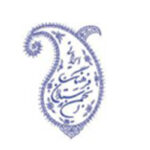The ascension of ‘Abdu’l-Bahá
‘Abdu’l-Bahá passed away in the early hours of 28 November, 1921, at the age of 78.
Of His passing, Shoghi Effendi has written:
“At 1:15 A.M. He arose, and, walking to a table in His room, drank some water, and returned to bed. Later on, He asked one of His two daughters who had remained awake to care for Him, to lift up the net curtains, complaining that He had difficulty in breathing. Some rose-water was brought to Him, of which He drank, after which He again lay down, and when offered food, distinctly remarked: “You wish Me to take some food, and I am going?” A minute later His spirit had winged its flight to its eternal abode, to be gathered, at long last, to the glory of His beloved Father, and taste the joy of everlasting reunion with Him.” [1]
His funeral, “a funeral the like of which Palestine had never seen,” drew “no less than ten thousand people . . . representing every class, religion and race in that country.” “A great throng,” the British High Commissioner wrote, “had gathered together, sorrowing for His death, but rejoicing also for His life.” The Governor of Jerusalem at the time also wrote in describing the funeral: “I have never known a more united expression of regret and respect than was called forth by the utter simplicity of the ceremony.” [2]
In God Passes By, Shoghi Effendi has written:
“The coffin containing the remains of `Abdu’l-Bahá was borne to its last resting-place on the shoulders of His loved ones…. The long train of mourners, amid the sobs and moans of many a grief-stricken heart, wended its slow way up the slopes of Mt. Carmel to the Mausoleum of the Báb . . . Close to the eastern entrance of the Shrine, the sacred casket was placed upon a plain table, and, in the presence of that vast concourse, nine speakers, who represented the Muslim, the Jewish and Christian Faiths . . . delivered their several funeral orations. The coffin was then removed to one of the chambers of the Shrine, and there lowered, sadly and reverently, to its last resting-place in a vault adjoining that in which were laid the remains of the Báb.” [3]
Among those that spoke at the Master’s funeral was Yúsuf al-Khatíb, a well-known Muslim orator, who said:
“O concourse of Arabians and Persians! Whom are ye bewailing? Is it he who but yesterday was great in his life and is today in his death greater still? Shed no tears for the one that hath departed to the world of Eternity, but weep over the passing of Virtue and Wisdom, of Knowledge and Generosity. Lament for yourselves, for yours is the loss, whilst he, your lost one, is but a revered Wayfarer, stepping from your mortal world into the everlasting Home. Weep one hour for the sake of him who, for well nigh eighty years, hath wept for you! Look to your right, look to your left, look East and look West and behold, what glory and greatness have vanished! What a pillar of peace hath crumbled! What eloquent lips are hushed! Alas! In this tribulation there is no heart but aches with anguish, no eye but is filled with tears. Woe unto the poor, for lo! goodness hath departed from them, woe unto the orphans, for their loving father is no more with them! Could the life of Sir `Abdu’l-Bahá `Abbas have been redeemed by the sacrifices of many a precious soul, they of a certainty would gladly have offered up their lives for his life. But Fate hath otherwise ordained. Every destiny is predetermined and none can change the Divine Decree. What am I to set forth the achievements of this leader of mankind? They are too glorious to be praised, too many to recount. Suffice it to say, that he has left in every heart the most profound impression, on every tongue most wondrous praise. And he that leaveth a memory so lovely, so imperishable, he, indeed, is not dead. Be solaced then, O ye people of Baha! Endure and be patient; for no man, be he of the East or of the West, can ever comfort you, nay he himself is even in greater need of consolation.” [4]
Wadi` Bustání, a Christian youth, offered a poem at the funeral:
“In the souls and in the minds thou art immortal. One like thee, who has all perfections, virtues and honors, is eternal…O `Abdu’l-Bahá, O son of Bahá’u’lláh! May my life be a sacrifice to one like thee. Thou art the all-wise, and all else beside thee are only learned. What can the poets say in thy day? O `Abdu’l-Bahá, O son of Bahá’u’lláh! Thou wert just as God wanted thee to be and not as others wished. Thou hast departed in the Holy Land wherein Christ and the Virgin Mary lived. The land that received Mohammed; the land the dust of which is blessing and wealth…We shall be sustained by this Tomb and the One it contains. The covenant of love and devotion will remain forever between us.” [5]
[1] Shoghi Effendi, God Passes By, p. 311.
[2] Ibid. p. 312
[3] Ibid. p. 313
[4] H.M. Balyuzi, ‘Abdu’l-Bahá, pp. 466 – 67.
[5] Ibid. p. 470.
Category: Quotations, Uncategorized










